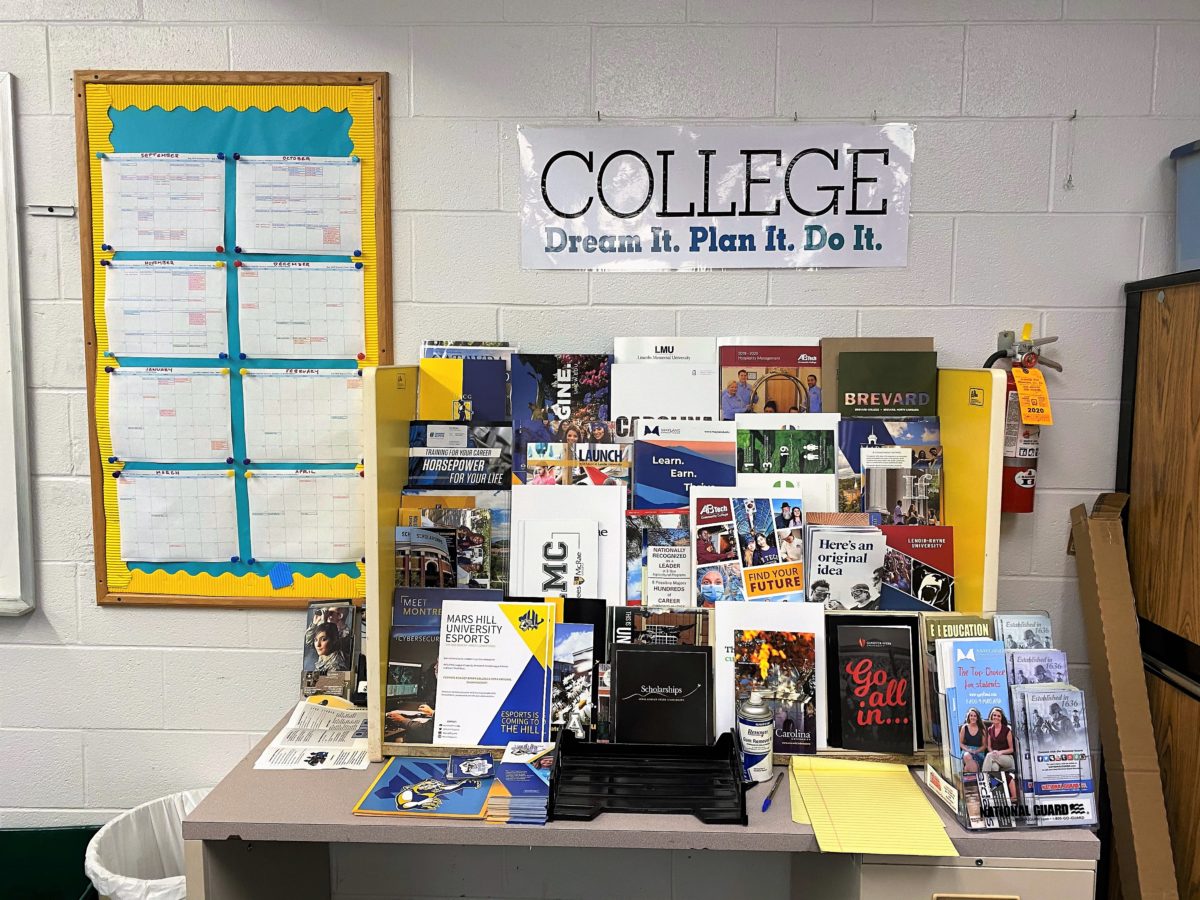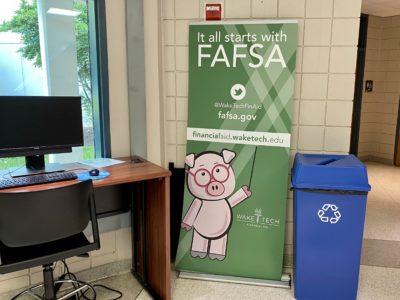

|
|
Usually students and their families can begin filling out the Free Application For Federal Student Aid (FAFSA) each year in October, but this year, changes to the form have delayed its release until December.
The FAFSA, which allows students apply for financial aid in order to attend college, will receive major changes that are decades in the making, according to Kathy Hastings McDonald, associate director for outreach for the North Carolina State Education Assistance Authority.
The FAFSA contains many questions and can be difficult and time consuming for students and families to complete. In 2021, Congress passed the FAFSA Simplification Act with the goal of simplifying and streamlining the process.
The FAFSA delay will require students and families to change behavior slightly, McDonald said. For students who have never completed the FAFSA form before, this will be the only form they know, she said, but the new form could cause an adjustment period for returning students and college financial aid departments.
“I think one of the challenges is a lot of students apply to college in the fall. And so it’s great to kind of have the FAFSA open up at the same time, because then students are kind of taking care of all the steps at the same time,” McDonald said.
The delay gives students and families less time to complete the FAFSA form, which could impact how many complete the form and actually enroll in postsecondary education.
In 2022, 48% of North Carolina high school graduates did not complete the FAFSA, or a total of 51,634 students. Of these students, 24,317 of them were eligible for the Pell Grant, which provides need-based aid to low-income students. In total, North Carolina students left $113,094,383 in Pell Grants unused in 2022.
McDonald said the delay could cause financial aid offices to scramble as well.
“With regards to the financial aid offices, at the colleges and universities, it might compress their timing,” McDonald said. “And so those are some of the folks that I’m sure might be feeling, particularly the delay a little bit more than others are.”
Changes to the FAFSA this year
There are several changes coming once the FAFSA is published in December. These changes will impact the aid certain students and their families receive.
First, McDonald said the changes to the form will expand the number of students who qualify for Pell Grants. Incarcerated individuals who are enrolled in prison education programs will also be eligible for Pell Grants. Grants do not require repayment.
Access to financial aid will also become more widely available as the new form removes restrictions barring students with certain drug-related offenses and those who have not registered for Selective Service.
Contributors to dependent students, such as parents or spouses, will no longer face the task of having to fill in their own information, as the IRS will provide it with their consent. This new element will reduce the manually-entered information and effort required for applicants while filling out the form.
McDonald stressed that contributors must provide consent, or the FAFSA form will not be processed and the student will not receive financial aid for the 2024-25 school year.
An additional change will allow students who have difficult living situations, such as those who would be in danger should a parent be contacted, to earn provisional independent status when applying to prevent potential issues.
For a select group, some changes may negatively impact the amount of aid students receive.
In the past, the FAFSA accounted for multiple members from the same family enrolled in college when determining the applicant’s need. The updated form will no longer provide for this, meaning a family with more than one member in college will be evaluated the same way as a family of similar means with just one member in college.
Additionally, the value of small businesses (fewer than 100 full-time employees) and family farms will no longer be exempt from net worth calculations, meaning families with such businesses or farms will now have to report those holdings as part of their net worth, which could impact aid provided.
“I think everyone in the field is really prepared to help students and they understand that again, there’s enough good coming out of the FAFSA, so we just need to adjust our schedule,” McDonald said.
Resources
For more information, check out the following resources:
- CFNC’s FAFSA guide, including an interactive map to help students find local financial aid assistance.
- Scholarships available in North Carolina, including more about the new consolidated scholarship for the state.
- NC’s 529 plan – “an easy way to crowdfund your education savings.”
- LatinxEd provides “targeted, multi-year support to Latinx students and immigrant families striving for higher education and greater opportunity.” One of the group’s initiatives is College y Consejos, which is a free online college advising space for Latinx students.
- The N.C. Community College System Scholarship Guide and the system’s Find Help program.
- North Carolina’s FAFSA tracker, where community stakeholders can “track FAFSA completion progress by school and district each week and deploy extra help where it’s needed most.”
- More information from NCAN about national FAFSA completion.





